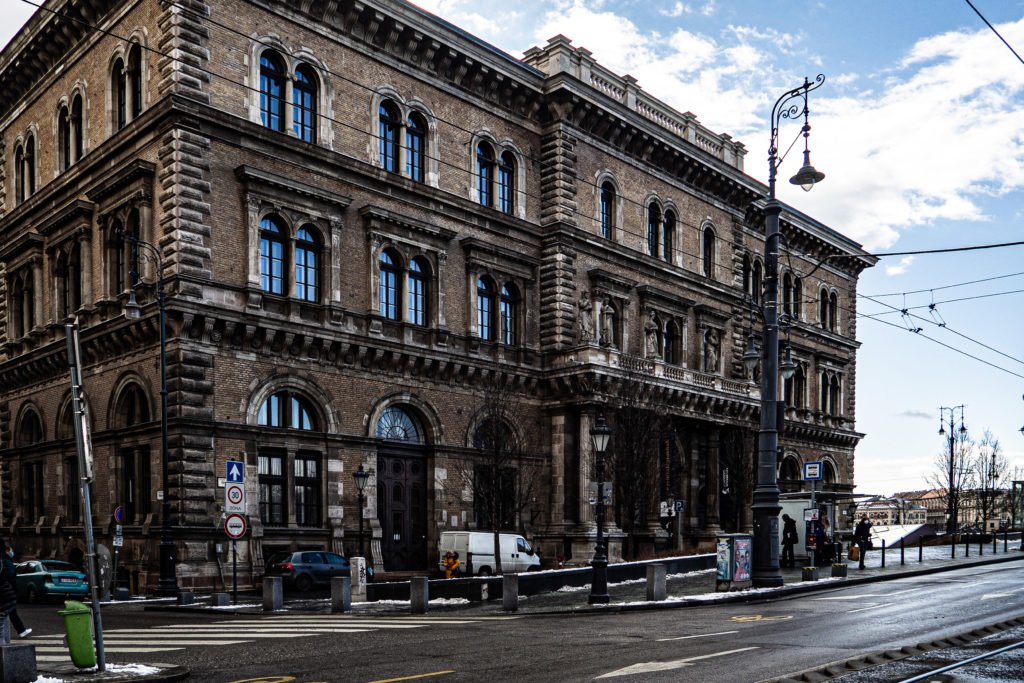Will interfaces take over the physical workplace in higher education? A pessimistic view of the future – Publication by Dóra Horváth, Tamás Csordás, Katalin Ásványi, Julianna Faludi, Attila Cosovan, Attila Endre Simay and Zita Komár

Abstract:
Purpose
The purpose of this paper is to argue for the sustained need for the physical workplace and real-life encounters in higher education even in the digital age despite being seemingly transformable into the virtual sphere as seen during the COVID-19 situation.
Design/methodology/approach
This study is based on a collaborative autoethnography by a group of seven higher educators with an overall 2,134 student encounters during the study’s time span. The authors then connect these practitioner observations with relevant COVID-19-related studies thereby adding to research on higher education as a workplace.
Findings
The data suggest that the physical workplace strongly bolsters the personal experience and effectiveness of higher education through contributing to its dynamics. Spaces predetermine the scope and levels of human interaction of teaching and learning. In a physical setting, all senses serve as mediators, whereas, online, only two senses are involved: vision and hearing. The two-dimensional screen becomes a mediator of communications. In the physical space, actors are free to adjust the working space, whereas the online working space is limited and defined by platforms.
Practical implications
Although higher education institutions may indeed fully substitute most practices formerly in a physical setting with online solutions, real-time encounters in the physical working space belong to its deeper raisons d’être.
Originality/value
This paper highlights the necessity of the physical workplace in higher education and describes the depriving potential of the exclusively online higher education teaching setting.
Source: emerald.com
Dr. Habil Horváth Dóra
Habilitált egyetemi docens, Tanszékvezető / Hab. associate prof., Head of Dep.
Rektori Szervezet / Marketing- és Kommunikációtudományi Intézet / Marketing- és Designkommunikáció Tanszék
Dr. Csordás Tamás Viktor
Egyetemi Adjunktus / Assistant Professor
Rektori Szervezet / Marketing- és Kommunikációtudományi Intézet / Marketing- és Designkommunikáció Tanszék
Dr. Ásványi Katalin
Fenntarthatóságért felelős dékán, Egyetemi docens / Dean for Sustainability Associate Professor
Rektori Szervezet / Fenntartható Fejlődés Intézet / Fenntarthatósági Menedzsment és Környezetgazdaságt
Dr. Faludi Julianna
Egyetemi Docens / Associate Professor
Rektori Szervezet / Marketing- és Kommunikációtudományi Intézet / Kommunikáció- és Médiatudományi Tanszék
Dr. Cosovan Attila Róbert
Egyetemi Tanár / Professor
Rektori Szervezet / Marketing- és Kommunikációtudományi Intézet / Marketing- és Designkommunikáció Tanszék
Simay Attila Endre
Egyetemi Adjunktus / Assistant Professor
Rektori Szervezet / Marketing- és Kommunikációtudományi Intézet / Marketing- és Designkommunikáció Tanszék
Dr. Komár Zita
Egyetemi Adjunktus / Assistant Professor
Rektori Szervezet / Marketing- és Kommunikációtudományi Intézet / Marketing- és Designkommunikáció Tanszék